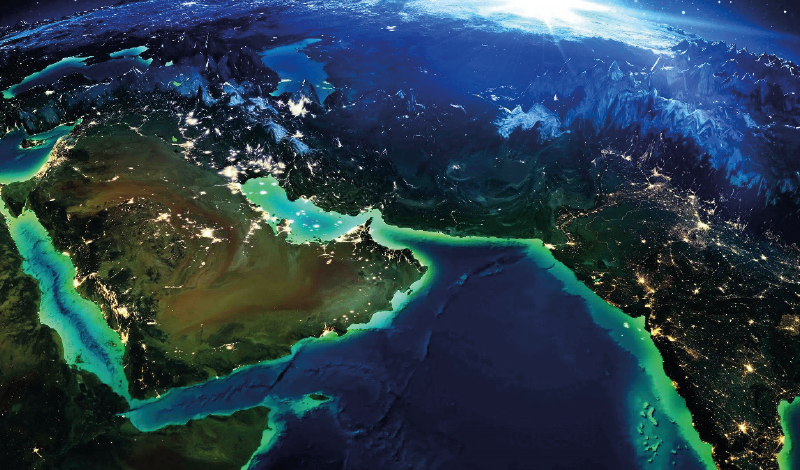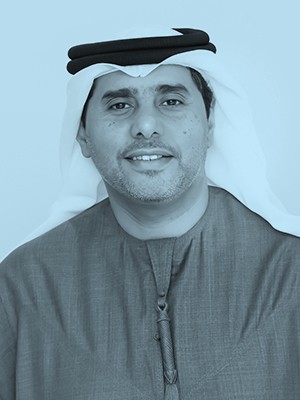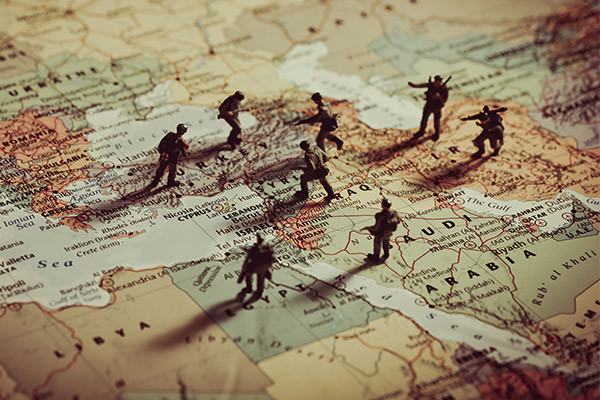The beginning of the GCC+
The Jeddah Summit for Security and Development my have not achieved all the objectives the White House aimed for, nor did it achieve the type of security guarantees the GCC hoped for, but it did achieve something that is potentially far more significant, a roadmap for the expansion of the GCC.

- by Mohammed Abdul Rahman Baharoon ,
- Tuesday, 19th July, 2022
The Jedda Summit for Security and Development didn’t end with a great bang. There were no grand agreements neither on Oil Production, nor on position regarding China or Russia and there was no Arab NATO announced.
The meeting also didn’t create a great momentum for Saudi relationship with Israel. The opening up of the Saudi airspace to commercial Israeli aircraft was just an extension of its decision to allow Israeli aircrafts heading to Bahrain and UAE to use Saudi airspace. The US announcement that it will leave the international peacekeeping forces, that include American personnel, from the islands of Tiran and Sanafir, may have confirmed the US commitment to bring soldiers home, though it has been a quite peace keeping mission.
The Saudi commitment to pump up production to 13 MBD, but they have indicated that its their maximum capacity which makes the achievement rather limited.
The establishment of combined taskforce for maritime security in the red sea with collaboration with Saudi forces, maybe a new area of cooperation and possibly a significant one, but it also confirms the US commitment of no “boots on the ground” which lead to withdrawal of troops from Afghanistan and Iraq.
The most significant achievement from the visit is possibly the concept of the GCC+. The meeting was described as a summit between the US and GCC+3, a reference to the participation of Egypt, Jordan and Iraq in the meeting. But beyond the meeting itself the areas of connectivity on energy, movement of people, protection of supply chain and of course the strategic thinking about the future indicates that GCC is looking at itself beyond the Arabian Gulf and into the Arabian Sea, the Red Sea as well as the Mediterranean.
The cooperation between the GCC and the three countries, as well as including them in a strategic framework for the region that involves the US maybe the most obvious sign to the future of the GCC.
The Jeddah Summit for Security and Cooperation maybe registered in history as the beginning of the formation of a GCC+ format.
This may not be merely an expansion of an existing multilateral organization but a watershed moment for the future of the GCC based on the Arabian Peninsula as a geostrategic space that can extend to Africa, Europe, East Asia and Indo-Pacific Asia. This indicates that there will be room to include other countries in the future within the GCC+ framework.

Mohammed Abdul Rahman Baharoon
Director General
Read More
Areas of Expertise
- Geo-strategy
- Reputation and soft power
- Public Policy and International Relations
Education
- Master’s degree in English Literature from Texas Tech University in 1995
- English Major from Kuwait University in 1987
Bio
He perused a career in media as a reporter for “Al Arabi” Magazine, Al Ittihad newspaper, and then Editor for Gulf Defense Magazine before starting as director of research at both and focusing on the interplay between Geostrategy and policymaking in governance, stability, capacity building, and future-proofing.
Mohammed has also worked as Deputy Director of Watani (UAE’s first initiative on National Identity) and is also a founding member of the board of “Bussola Institute” a think tank in Brussels that focuses on the changing and emerging aspects of the partnership between the EU and the GCC member states.
As part of his interest in the emerging geostrategic space of the Arabian Peninsula, Mohammed looks at Iran as part of the development of the area as a major trade artery. This development implies developing a sustainable relationship with its regional neighborhood on the Arabian Gulf, The Arabian Sea, the Red Sea, or the Mediterranean. Iran is a major component of that space and becoming more adaptable to the modernization process will allow it to become part of the future development of the region.

